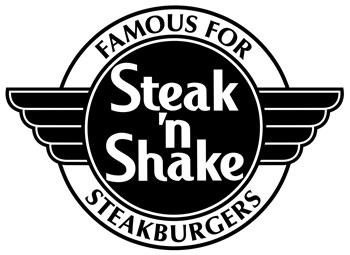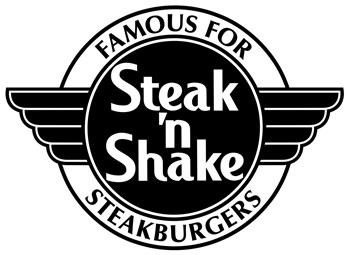

Nutrition facts and Weight Watchers points for Bud Light from Steak ‘n Shake.
Calories
There are 100 calories in Bud Light.
Nutrition Facts
| Serving Size | 1 Serving | |
| Calories | 100 | |
| Calories From Fat | ||
| Amount Per Serving | % Daily Value* | |
| Total Fat | 0g | 0% |
| Saturated Fat | 0g | 0% |
| Trans Fat | 0g | |
| Cholesterol | 0mg | 0% |
| Sodium | 10mg | 0% |
| Total Carbohydrates | 5g | 2% |
| Dietary Fiber | 0g | 0% |
| Sugars | 0g | |
| Protein | 1g | 2% |
| Vitamin A | ? | |
| Vitamin C | ? | |
| Calcium | ? | |
| Iron | ? | |
*All percent daily value figures are based on a 2,000 calorie diet.
Nutritional information source: Steak ‘n Shake
Allergens
We are working on getting the allergen information for this item.
Ingredients
We are working on getting the ingredients for this item.
Additional Information
Bud Light is a popular beverage offered by Steak ‘n Shake, known for its delicious burgers and shakes. In this expert review, we will delve into the features, benefits, and drawbacks of Steak ‘n Shake Bud Light to provide you with valuable insights into this refreshing beverage.
Features & Benefits
1. Low-calorie option: One of the outstanding features of Steak ‘n Shake Bud Light is its low calorie content. With only 100 calories per serving, it can be an appropriate choice for individuals who are concerned about their caloric intake.
2. Low Fat and Zero Saturated Fat: Bud Light is a beverage that can fit into a healthy lifestyle. It contains zero grams of fat and saturated fat, making it a lighter option compared to other alcoholic beverages.
3. Low Sodium: For those watching their sodium intake, Bud Light can be a great choice. It contains only 10 milligrams of sodium per serving, which is relatively low compared to many other beverages.
4. Moderate Carbohydrates: Bud Light has 5 grams of total carbohydrates per serving. While it is not a carb-free option, the moderate carbohydrate content allows for inclusion in a balanced diet.
5. Good protein content: For a beverage, Bud Light provides a surprising 1 gram of protein per serving. While it is not a significant source of protein, every bit counts toward meeting your daily requirement.
Benefits:
1. Enjoy with fewer calories: Bud Light allows you to enjoy a refreshing beverage without consuming excessive calories. It can be an appropriate choice for individuals who want to enjoy a beverage while being mindful of their caloric intake.
2. Versatile and refreshing: Bud Light’s light and crisp flavor profile makes it a versatile drink that can be enjoyed in a variety of settings. Whether it’s a casual get-together, an outdoor event or simply unwinding after a long day, Bud Light offers a refreshing experience.
3. Suitable for low sodium diets: Individuals on low-sodium diets or with special dietary restrictions may find Bud Light to be a suitable option. Its low sodium content makes it more compatible with these dietary considerations.
4. Compatibility with balanced diets: Bud Light’s moderate carbohydrate content and absence of fat and saturated fat make it a beverage that can be incorporated into a balanced diet. It can be consumed without significantly affecting overall macronutrient intake.
Disadvantages:
1. Limited nutritional value: While Bud Light is a low-calorie and low-sodium option, it does not offer substantial nutritional value beyond its modest protein content. It should be consumed primarily for enjoyment rather than as a significant source of nutrition.
2. Alcohol Content: Bud Light is an alcoholic beverage and it is important to consume it responsibly. It is not suitable for individuals who should avoid alcohol for health, personal or legal reasons.
3. Personal taste preferences: As with any beverage, personal taste preferences may play a role in an individual’s enjoyment of Bud Light. Some may find its light flavor appealing, while others may prefer a different flavor profile.
4. Limited allergen and ingredient information: One of the drawbacks of the information available on the site is the lack of allergen and ingredient information for Bud Light. This can be a concern for individuals with specific dietary restrictions or allergies.
Conclusion
Steak ‘n Shake Bud Light offers a low-calorie, low-fat, low-sodium option for individuals who want to enjoy a refreshing beverage. It can be an appropriate choice for those who want to indulge while being mindful of their caloric intake and dietary considerations. However, it is important to consume Bud Light responsibly, consider personal taste preferences and be aware of the limited nutritional value it provides. In addition, individuals with specific dietary restrictions or allergies should seek additional information regarding allergens and ingredients. Enjoy Bud Light in moderation and enjoy the light and crisp experience it provides.
Questions and Answers
Is Bud Light a good choice for people on a low-calorie diet?
Yes, Bud Light can be an appropriate choice for individuals on a low-calorie diet. With only 100 calories per serving, it is a relatively low-calorie beverage option that allows for indulgence while being mindful of calorie intake.
Does Bud Light contain any fat or saturated fat?
No, Bud Light contains no fat or saturated fat. It is a lighter option compared to many other alcoholic beverages, making it more compatible with a healthy lifestyle.
Can people on a low sodium diet drink Bud Light?
Yes, people on a low-sodium diet can consume Bud Light. It contains only 10 milligrams of sodium per serving, which is relatively low compared to other beverages. However, it is always advisable to consult with a healthcare professional or dietitian regarding specific dietary restrictions.
Can Bud Light be part of a balanced diet?
Yes, Bud Light can be part of a balanced diet. It has a moderate carbohydrate content and is free of fat and saturated fat. While it should not be relied upon as a significant source of nutrients, it can be incorporated into a balanced eating plan without significantly impacting overall macronutrient intake.
Is Bud Light suitable for people who should avoid alcohol?
No, Bud Light is an alcoholic beverage and should be consumed responsibly. It is not suitable for individuals who should avoid alcohol for health, personal or legal reasons. It is important to be aware of individual limitations and make informed decisions regarding alcohol consumption.